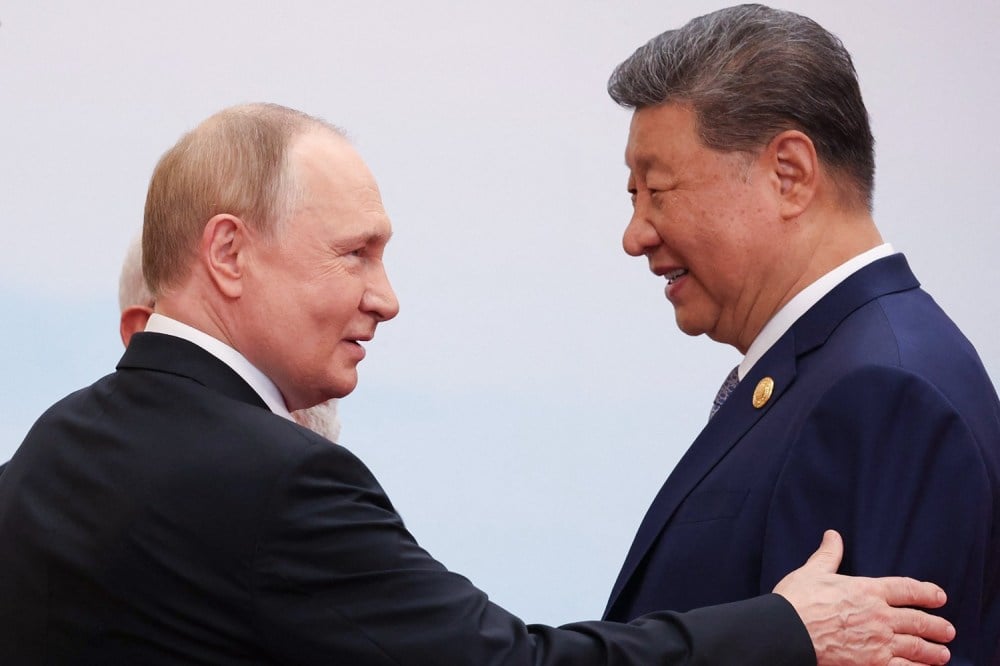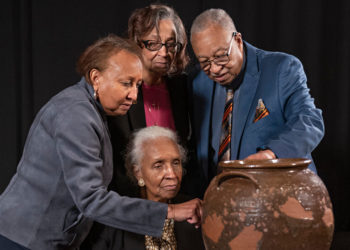Welcome to Foreign Policy’s China Brief.
The highlights this week: The Shanghai Cooperation Organisation summit comes to a close, Beijing prepares to host a military parade, and Trump flip-flops on Chinese student visas.
China-Russia Ties on Display at SCO Summit
Over the weekend, China hosted 20 foreign leaders in Tianjin for a Shanghai Cooperation Organisation (SCO) summit, seeking to send a message of unity among its allies and partners in contrast with the United States’ attacks on its own friends under President Donald Trump.
Only about half of the leaders present were official SCO members; the rest were partners or observers. Apart from the big three—China, India, and Russia—SCO membership is weighted toward Central Asia.
Chinese President Xi Jinping met with Russian President Vladimir Putin on Tuesday, with both leaders putting out statements that emphasized Western iniquity. But despite all the glad-handing and photo-ops, there remains an underlying tension between Russia and China at the SCO.
In addition to economic cooperation, the SCO regularly holds military exercises, usually branded as anti-terrorism efforts. An unstated purpose of these activities is rehearsal for suppressing domestic rebellions with the help of foreign forces—as Russia did in Kazakhstan in January 2022.
Both China and Russia play the main role in these exercises, with Beijing frequently including units of the People’s Armed Police, a paramilitary force used primarily for domestic repression. But before 2022, Russia was seen as the primary security patron for the region—a status it attempted to maintain after the collapse of the Soviet Union—while China’s role was principally economic.
The problem for Russia is that China has become a far more plausible security guarantor. Since its full-scale invasion of Ukraine in February 2022, Russia has spent three and a half years trapped in a war that was supposed to take weeks. Moreover, Russia proved ineffectual at protecting its client state Armenia during the latter’s brief conflict with Azerbaijan in 2023.
Though Russia’s 2022 intervention in Kazakhstan was successful, it also damaged Moscow’s public image in the country. And Astana didn’t show any gratitude: When Russia invaded Ukraine the following month, Kazakh leaders refused to recognize Russian territorial claims in Ukraine.
Central Asian autocrats are now much more deferential to Beijing’s needs than Moscow’s. Despite public anger about the treatment of Muslims in Xinjiang, Central Asian states have curried favor by cracking down on Uyghur-sympathetic activism, in what was likely a quid pro quo for the release of some of their nationals from Chinese internment camps. In contrast, these same states have taken a much lighter hand on pro-Ukrainian activism.
China has sought to sell not only economic connection but also surveillance and security guarantees along the so-called Silk Road Economic Belt, the Central Asian routes that make up part of Beijing’s Belt and Road Initiative.
Yet China’s ability to protect other states has been relatively untested in recent decades—and its historical record with its partners and allies is dodgy. Its intervention in the Korean War was critical in saving North Korea, but it failed to protect its “iron brother” Pakistan during the 1971 Bangladesh war; its invasion of Vietnam in 1979 was a botched catastrophe.
None of this means that a split between China and Russia is imminent or even likely, despite the fantasies about it that periodically pop up in Washington. In his meeting with Xi, Putin described Russia-China ties as being at an “unprecedentedly high level.” Though Russia might not be comfortable as the junior partner in the relationship, for now it doesn’t have any better options.
What We’re Following
World War II parade. Following the SCO summit is a massive military parade in Beijing on Wednesday to mark the 80th anniversary of China’s victory over Japan in World War II. As Chinese dissident Deng Yuwen writes, the parade is a diplomatic display as much as a military one, but it’s also looking to send domestic messages.
In Chinese Communist Party (CCP) doctrine, the greatness of the People’s Liberation Army (PLA) stems from both its defense of China against outside aggressors and its role guaranteeing security and peace at home.
The wide avenues where Xi will watch soldiers parading were once a mass of tangled alleys, rebuilt in the 1950s to allow the military to easily enter the heart of the city and put down rebellion. Since 1989, the PLA has maintained a substantial presence in Chinese cities, with numerous barracks located throughout Beijing with troops serving as a garrison force.
But the relationship between the PLA and the CCP isn’t straightforward because when the party was split, the PLA often took sides. In the early years of the Cultural Revolution, the PLA was used to crush the Red Guards—the young, radical extremists who had heeded leader Mao Zedong’s call to violence—when the party worried they had gotten out of hand.
In 1976, PLA generals conspired with Hua Guofeng, Mao’s eventual successor, to purge the extreme Maoist Gang of Four after Mao’s death. That history is why there have been so many rumors of late of a military coup against Xi. To be clear, these claims are unsourced and almost certainly untrue. But they represent the hope from some Chinese worried about the direction that Xi has taken the country.
In this sense, Xi’s appearance at the parade won’t just send a message to foreigners; it will signal that he is, without question, in control of the army—and serve as a reminder that power in China still depends on the barrel of the gun.
Student visa flip-flop. After the Trump administration announced plans in May to “aggressively” revoke the visas of Chinese students, the president has since changed course as he seeks a high-profile meeting with Xi. The White House has pledged to issue 600,000 Chinese student visas over the next two years, and last Friday, Trump defended the decision as the “right thing to do.”
The news, which prompted immediate backlash from Laura Loomer and other MAGA-linked figures, is very unlikely to materialize. There is a strong chance that Trump will swing back to anti-Chinese rhetoric and abandon these policies if he can’t find common ground with Xi.
Even if U.S. visa policy actually became more generous, Chinese students and parents are well aware of the government-led campaign against immigrants in the United States and, like other international students, are already looking elsewhere.
FP’s Most Read This Week
- Trump’s Economic Policy Is More Radical Than You Think by Howard W. French
- So You Want to Work in International Affairs by Luke Coffey
- China and India May Be Moving Toward a More Coordinated Foreign Policy by Chietigj Bajpaee and Yu Jie
Tech and Business
Soybeans sink. U.S. soybean sales to China—the world’s largest market for the crop—have plummeted this year as a result of Trump’s brief but intense trade war. China was already building greater ties with major soybean producer Brazil and is now sourcing most of its needs from there.
China’s pivot is forcing prices down for U.S. farmers and contributing to a quiet agricultural crisis in the United States as tariffs and the destruction of the U.S. Agency for International Development hit producers. Food security is a priority for the Chinese government, and it’s unlikely that China will ever return to the United States for soybeans unless the relationship substantially improves.
Video game sequels. Last year’s mega-hit Chinese video game Black Myth: Wukong is going to become a series of games featuring other favorite characters from Chinese legends. The next iteration will follow Zhong Kui, a Daoist god associated largely with exorcism (once a mainstay of Chinese religious practice and a core part of popular entertainment).
Chinese censors are usually skeptical of religious or magical depictions, but well-established myths get a pass. Black Myth’s success was largely domestic, though the game received high marks from foreign reviewers. The game’s success has already inspired inferior imitators.
The post Putin Pays Homage at Xi’s Summit appeared first on Foreign Policy.




